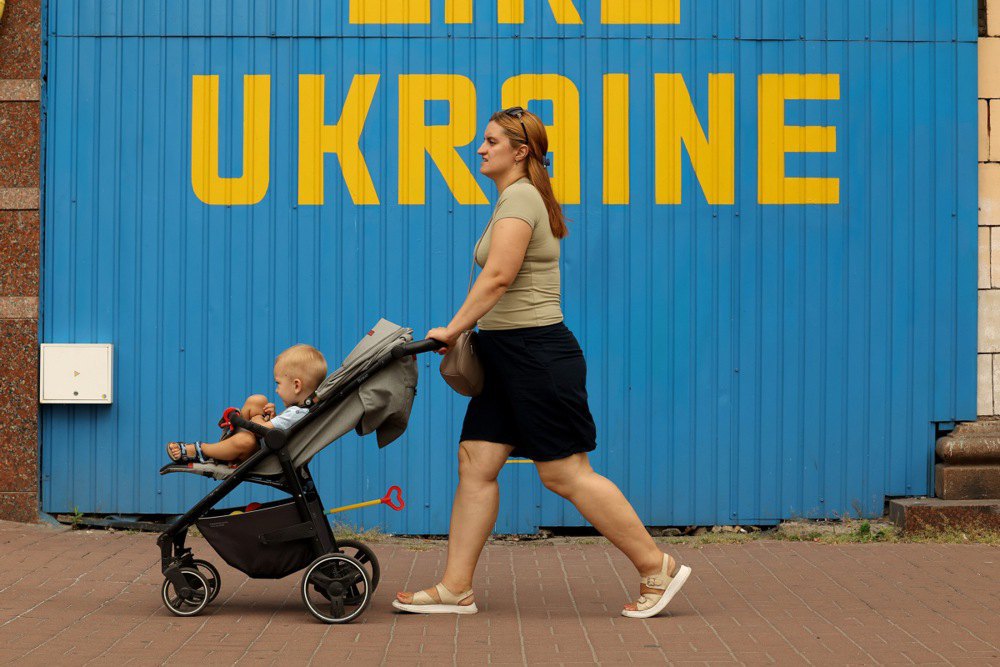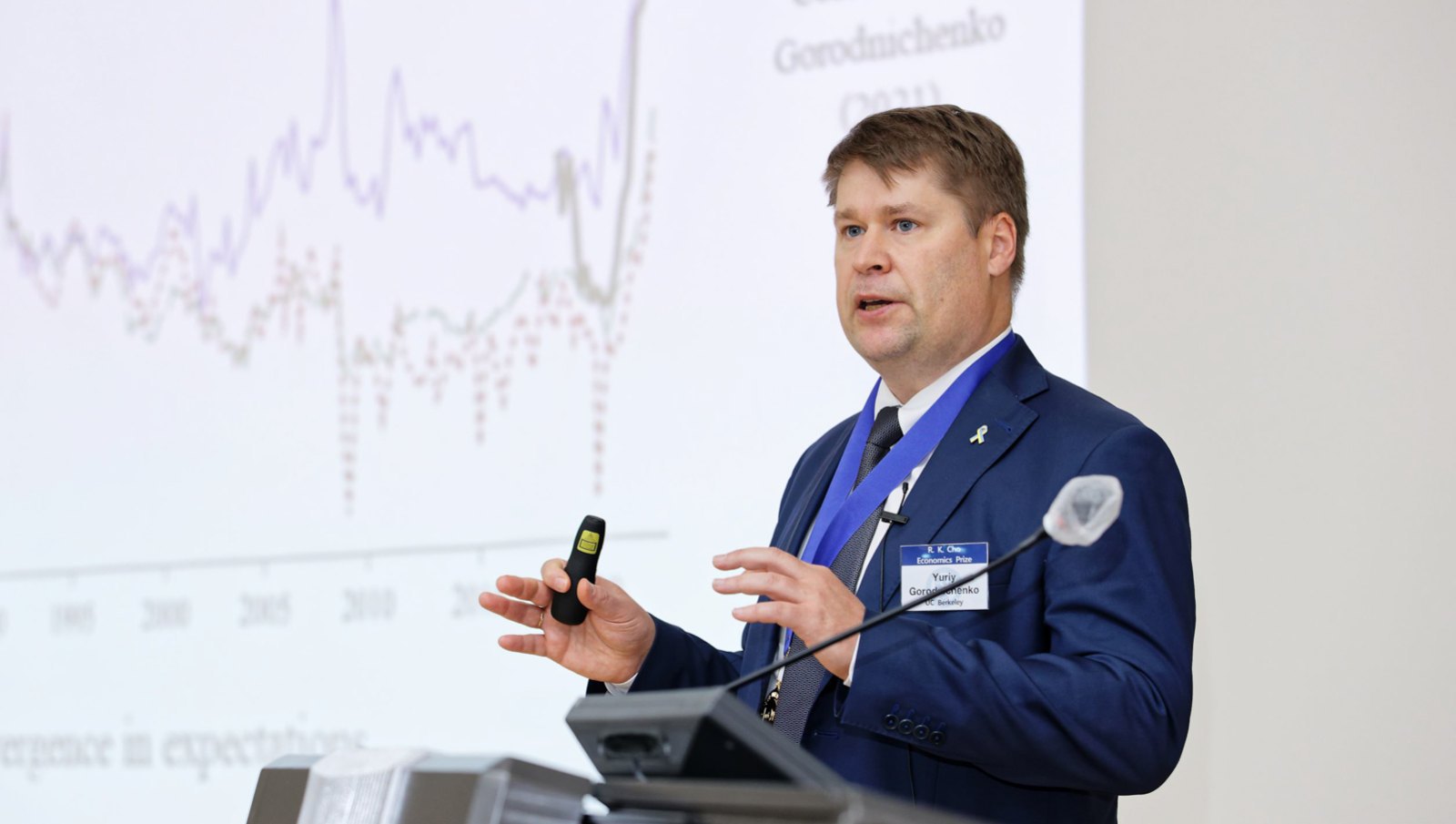Before the war, Ukraine's GDP was about $200bn. That is, President Zelenskyy proposes that Ukraine's economy should grow five times in 10 years. This is a very ambitious goal, but I think it is unlikely.
I just want to remind you that when President Zelenskyy first came to office, he promised that Ukraine would grow by 7% a year for 5 years. At that time, before the war, I estimated that the probability of such growth was about 2%. What President Zelenskyy is saying now is even faster growth. I am sure that Ukraine will grow rapidly after the victory, but growth of $800bn is even less likely to happen. If we take a trillion dollars and divide it by 40mn people (if all refugees return to Ukraine), we are talking about about 50,000 dollars per capita.
This is the level of the United Kingdom.
Let everyone decide for themselves how realistic this is, but we didn't even have 10,000 before the war. That is, we have to become 5 times richer. Maybe it will happen, who knows, but the probability is not very high. I think that we, Ukrainians, Ukraine, need to set ourselves bold, worthy goals. But something that is too high and unrealistic will undermine faith, let's say, in the fact that decision-makers understand, how to put it diplomatically, not just algebra, but just some budgetary constraints.

First, we need to catch up with the pre-war level. I am sure we can do this relatively quickly. Going back to the historical experience, how long did it take Germany to recover after the World War II? We are talking about 5 years or so. How many years did it take France? We know that it took about 5 years to recover to the pre-war level. But we are saying that we will not go to the pre-war level, but much further. And this is another story.
We have 8 or 9 million citizens outside of Ukraine. Growing at this rate will require huge human resources. It is not a certainty that all these people will return. But it is obvious that we will have to work on this.
A conference on rebuilding Ukraine, URC 2023, was held in London, the next one after Lugano. Even in the description, one could see how the language had changed compared to last year's: it was about stabilising the economy, helping to meet urgent needs, and engaging the private sector in recovery, rather than "we can spend $750bn," as it was a year ago. A reconstruction program was brought to London, and now some say that we need to plan on a large scale, i.e., amounts of up to a trillion dollars in reconstruction costs are normal. Others say that we need to plan what private investors will be like, or at least what the governments of partner countries will not doubt.
One does not exclude the other, both can happen. Where did the trillion-dollar budgets come from? First of all, these were not amounts for a year, not a one-time payment at the beginning of Ukraine's reconstruction, but for about ten years, maybe even a little more. That is, an average of $100bn a year. Secondly, the restoration of Ukraine is not a project where only public finances can be involved. The main goal of this rebuilding, this recovery, is actually to modernise the country. This means that we need to raise not only money to build a new city, a new school, but also to include Ukraine in international production chains. We need to work with Volkswagen, Boeing, anyone.
And, of course, no public funds will connect us to these chains; it must be private money.
— Yevhen Alifirenko
So there is no direct contradiction here, but it is clear that private money alone is clearly not enough.
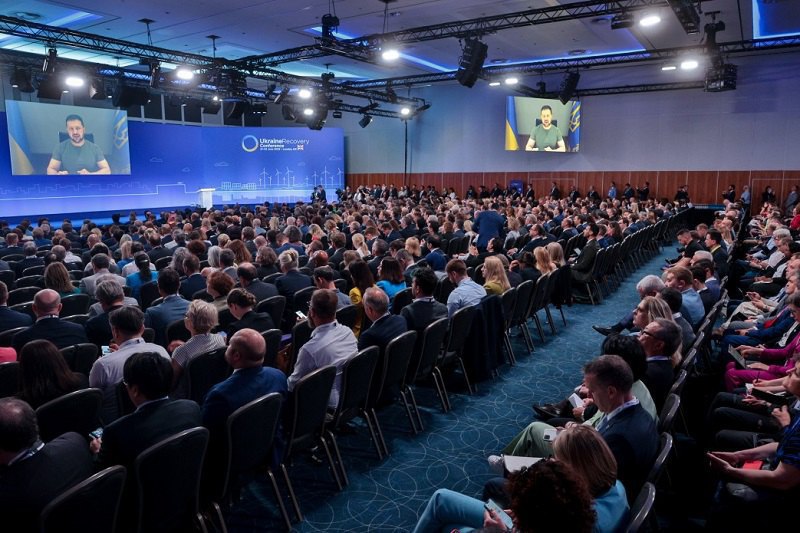
For example, the war is over, we have won. Who will invest in Ukraine for the first month, maybe a year, two or three? It will be difficult for private investors because there are many uncertainties, there is no critical infrastructure, and there may be interruptions in some areas. Who will rebuild the infrastructure? This is where public finance will play a big role, and this is the support we can get from the European Union and our other allies. This will be critical at these stages, the first year or two or three. And then it is quite possible and desirable that private money will come to us. Because in the end, it can be much larger amounts and it will bring us technology.
What can convince ordinary private capital? Rheinmetall, Baykar or BAE, military manufacturers may be building plants right now. But what can convince ordinary capital to take risks? I have seen comparisons with Israel, which has existed in similar conditions for many decades, but is it possible to compare?
One of the main criteria for these decisions to invest in Ukraine or not is security. If there is, relatively speaking, a guarantee that Russian missiles will not fall on us again, Ukraine will become much more attractive. If there is no such guarantee, we will live like Israel and South Korea. This means that we will always have to invest a lot of resources in the defence and security forces.
But even under such not very favorable conditions, it is possible to develop. Why can Ukraine be an attractive investment destination? First, we have an educated labour force. Second, it is relatively cheap. Third, we have interesting resources, technologies, and so on. For example, agribusiness has a huge potential.

Also, investors of international corporations begin to think about where their weaknesses lie, how much their production is tied to China. Yesterday, Russia exploded, and everyone thought, how did it happen that we are so dependent on Russia? And tomorrow, China may explode, and then the problems will be even greater. But many businessmen realise this and start looking for opportunities to move production to other countries. This is what is called friend-shoring. You want your chains to be tied to friendly countries. It is obvious to me that Ukraine will be a friendly country for the European Union, for the United States, or whatever.
Why is this important? Because when we talk about the modern economy, it is an on-demand philosophy. You press a button and in an hour or two, a day, the product you ordered is delivered to you. This is difficult to do if your production is in China, because China is far away. It takes several weeks or a month to put a container in Shanghai and send it to Hamburg, Germany. And on the other hand, there is Ukraine: you put it on a trailer, and it takes 20 hours to drive from Kyiv to Berlin. So you can do it all in a day. Of course, we have a problem with geography - Russia. But on the other hand, we are close to Europe, an extremely large market of about 500mn people. And this may be one of the key reasons why people will invest in Ukraine.
And going back to the experience: Poland, Hungary, the Czech Republic, there was a huge investment boom after they joined, even before they joined the European Union. And after they joined, Poland, for example, grew all the time, they never even had a recession in the classic sense, while Europe had serious recessions.
Is it enough for Ukraine to do everything that Poland or Hungary did 30 years ago?
There are standard things like a regulatory framework that is compatible with the European Union. There is nothing to change here, to be honest. But some things may develop differently. For example, when Poland and other Eastern European countries were admitted to the EU, they emphasised the need to open factories and production facilities and to keep industry running. In a sense, it may be easier in Ukraine because we have an IT sector that is extremely dynamic and powerful. In a sense, we may not need to push for the opening of a plant that will assemble Volkswagen or something else.
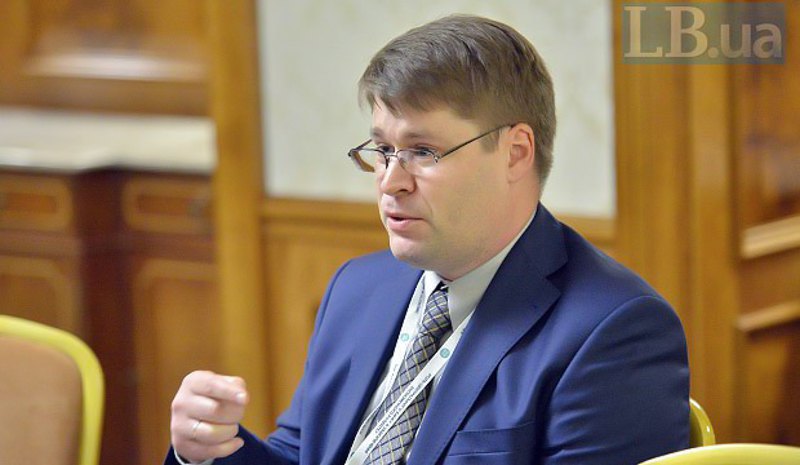
Can you compare what awaits us with a specific Marshall Plan that everyone followed? In our case, there is a specificity that I cannot recall in other cases - large-scale destruction, very large-scale social challenges, a clear evil represented by Putin's Russia, a large and rich coalition that supports Ukraine. But I also see problems when Poland, Hungary, and Romania are already trying to limit our exports because they see losses for their producers.
Let me start by saying that this Marshall Plan can be done or not done when there is a war. And the Marshall Plan included not only Germany and France, but also Greece, for example, which had a civil war at the beginning of the reconstruction. When money was given to Italy, there were always some thoughts about corruption and who would control it. Nevertheless, we gave a lot of money to Italy, and we can say that everything worked. Concerns about corruption did not prevent the distribution of money and effective decisions. Likewise, the risk of war or even war itself may not be a factor that will limit us much.
The fact that you mentioned what it would look like if our partners argue about Ukrainian grain or some other products is one of the reasons why many things need to be fixed before the war ends. While Ukraine is at the top, so to speak, of all these meetings and world headlines, we need to fix the amounts, mechanisms, who is responsible for what, and so on.
Will we have a unified plan? I really hope so, because to be honest, what I saw in Lugano and London was not very inspiring, because it is obvious that there is no single plan. There are many people, organisations, countries, institutions that want to help us, but there is no master plan, so to speak.
This is not a problem; let's recall the Marshall Plan, the United States had been thinking about for 3 years. The war ended in Europe in 1945, and the Marshall Plan was introduced in Europe in 1948. Three years of hesitation and reflection, developing plans. We are not at that stage, we started much earlier. But the process of creating a unified master plan should, of course, be accelerated.

As for the recovery model. "We will rebuild as it was" or "we need to return housing or jobs to people where they lost them" or "we have a chance to step into the future, to adapt to the demand of the future." First, are these equivalent alternatives, i.e., can the state commission sit down, put them in front of it and compare them? And secondly, won't the socially responsible way of "getting back what we lost" turn out to be a trap that will bring back monotowns or the same coal mines?
We do not need to restore Ukraine as it was before the war. This is a bad option. We need to use the tragedy to take a step into the future. For example, you look at Saltivka in Kharkiv. This is such Soviet architecture, it's not very comfortable, not very pleasant to live in, inefficient. Why should we restore this architectural masterpiece, so to speak? It doesn’t have any historical value.
Can we think about the future? Of course we can. I don't want to go back to the days of the Soviet Union and five-year plans, where they wrote down what they wanted to build — we don't need to do such an extreme thing. Many Western countries had indicative plans. Critical sectors were identified, and funding was provided for them. Who will do this again? It doesn't have to be the state of Ukraine or any agencies, it can be very different organisations. I hope that a lot will be done through private companies.
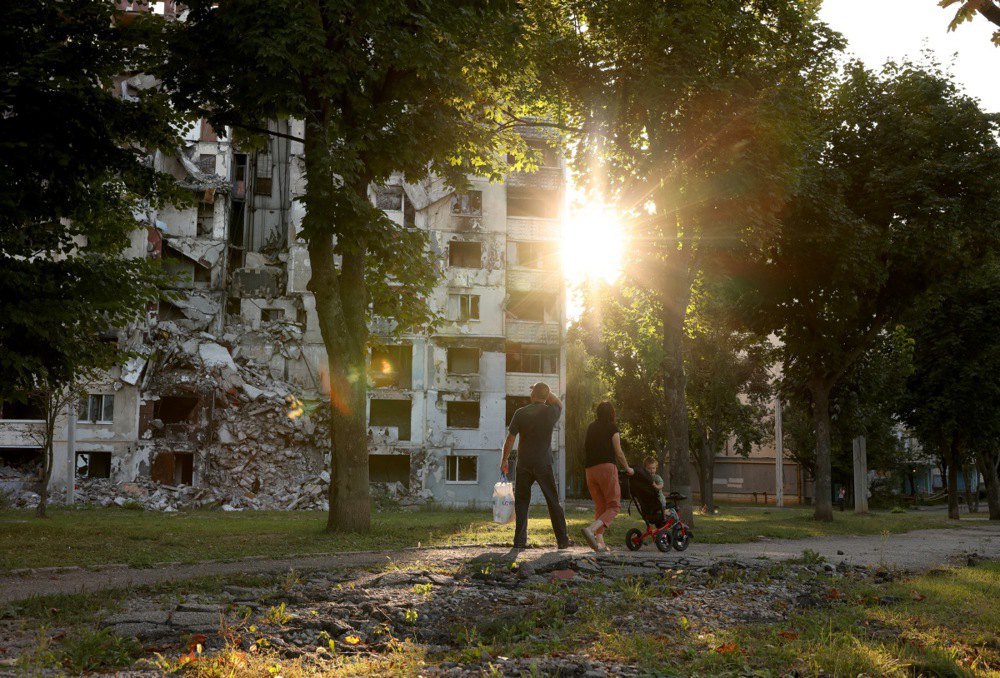
There are two concerns in Ukrainian society in this regard. Will justice be realised during the reconstruction, or will it turn out to be a continuous field of corruption, so should we give control to international organisations at all, or maybe adapt British law? And vice versa - will Ukrainians be mostly stakeholders in this reconstruction?
My deep conviction is that Ukraine should be the main stakeholder. If we are rebuilding something in Bucha, Mariupol, or anywhere else, we are not doing it because a Western sponsor wants to rebuild Bucha or Mariupol. We really believe that we need a school here and a new bridge here. Eventually, all Western support will end, and the bridge, school, and so on will have to be maintained. This will be at the expense of the Ukrainian community. Obviously, Ukraine has to be the owner in this process.
Another scenario is to give this restoration to European officials or someone else to manage the processes. To be honest, the experience of previous cases like these is not very convincing, if you look at Afghanistan or Iraq.
I'm against the European Union having a monopoly on all issues. The golden mean is for the initiative to come from Ukrainian sources, to be considered through expert commissions in order to receive funding. The initiative should be ours, but the control, especially if it is money from German or French taxpayers, should be of these countries or the EU. We want to avoid new privatisations when someone becomes very, very rich with public money.
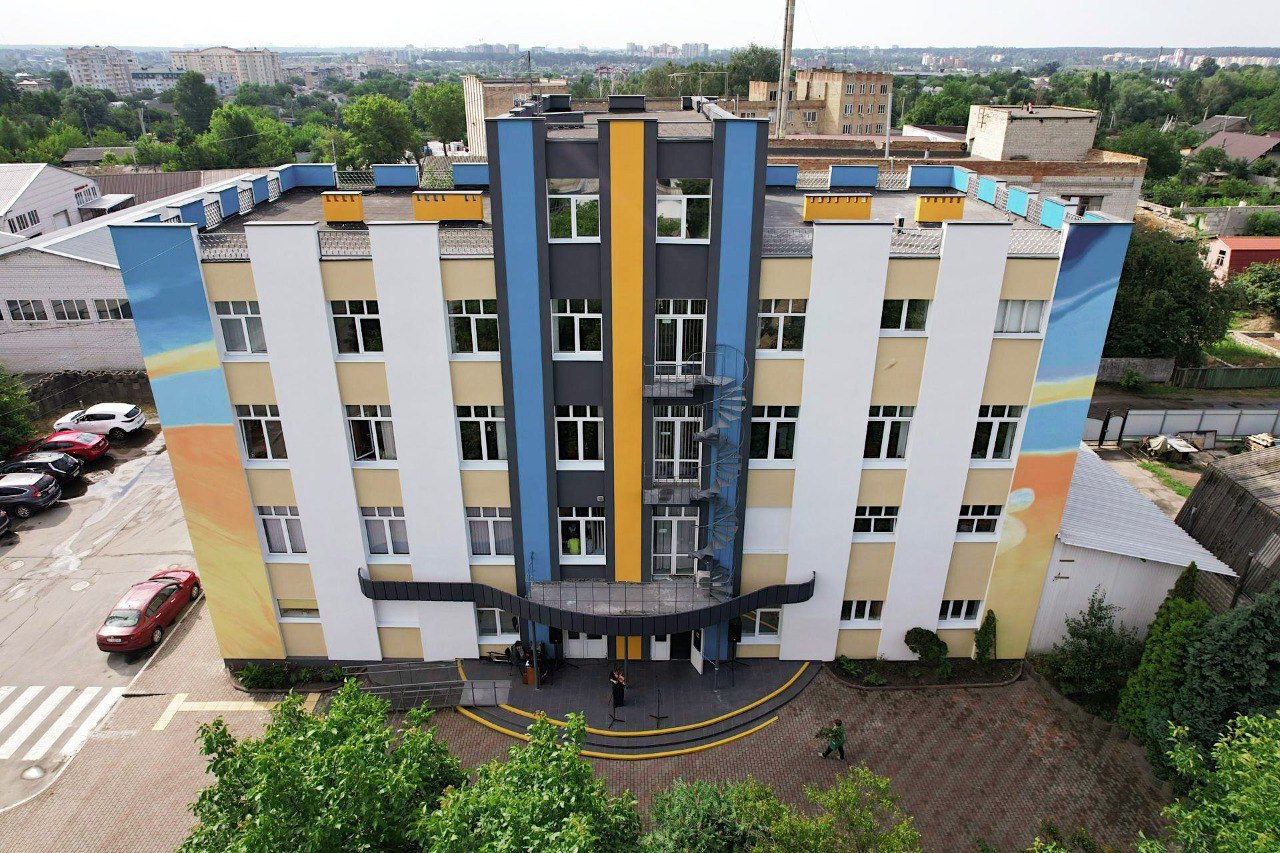
Ukraine does not have a large share of state-owned enterprises, but how can we encourage the private sector to think and develop with concern about future too? Dirigisme? A stimulating tax regime? Information campaigns?
Well, I don't really believe in campaigns, because in the end, everyone is looking at profits. Airship is an interesting thing, but I don't think it works. How can it be done? Let me give you some examples. Everyone is talking about climate change and green energy. The main driving force in this process is profit. There is a system of pricing mechanisms that make it profitable to engage in green energy, switch to electric cars, and so on. These can be subsidies, tax benefits, access to finance. It works, and I am sure it works in Ukraine as well.
But we have learned helplessness: private businesses need to make money quickly and record profits. How can you work towards some distant goal if its achievement can be affected by various factors, including the war?
There is indeed uncertainty, 10 years is a very long time, but what can be done? First, what is called public-private partnership, an alliance of the state and private investors who share risks. This is the first option. The second option, going back to the incentives, is that the first to arrive has the most favorable tariff. The second to arrive gets a less favorable tariff. And this is how these incentives are created so that businesses actively come in and do something. If you came in on the first day after the war, after the victory, you get the best regime. In 10 years, it will not be so attractive.
There are also two economic populist legends in Ukraine: one about small business for every Ukrainian and how important it is for everyone to become an owner; and the other about Japanese zaibatsu and South Korean chaebols, which probably evoke parallels with our attempts to build economies with oligarchic groups. How did they work there as something like centers of crystallisation in the destroyed economies? Maybe it's good that we are looking for such examples, but does it make sense to encourage this?
Well, the zaibatsu in Japan were big aggregators of resources, these monopolies, and they were useful when there were no other sources of financing and no one really wanted to invest in these countries. Because, for example, [South] Korea was even more dangerous than Ukraine. If you go back to 1953, by the way, they still hadn't signed peace agreements with the North Korea. Somehow these resources had to be mobilised, and there was one solution. I think we don't need this, because even in these economies-Japan, South Korea-there is an extraordinary level of monopolisation. This is not good. You can create, so to speak, national champions, create Samsung or Mitsubishi, something like that. But on the other hand, you suppress competition.
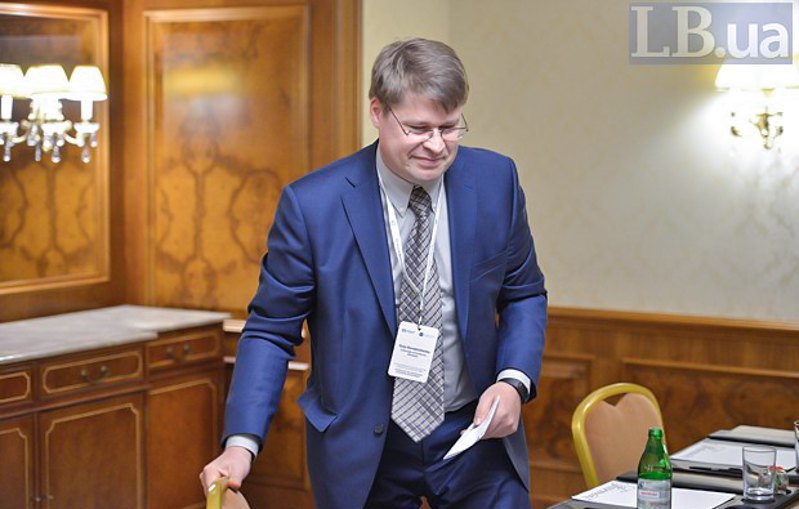
As for the idea of everyone having their own company or something, this is another polarising idea, but again I think it's not very useful. Obviously, there are economies of scale. That you can't work alone in some shop, that you need to grow, that you need scale in order to make a profit. By the way, this is extremely important in agriculture. Everyone talks about farmers, but if you look at the United States, yes, there are farmers there, but the role of large agricultural holdings is extremely important. They are the ones with labor productivity and real profits.
Therefore, we need to find some way to keep it in the middle, and this is another reason why Ukraine should join the European market as soon as possible. For example, if you look at the electricity sector, we had a paradoxical situation where a lot of energy was controlled by someone, but the Antimonopoly Committee said that everything was fine, we have a competitive environment, if there was something to hide. But now we are connected to the European Union's energy grid, and at least theoretically, Kyiv can buy energy not from DTEK, but from Poland or Hungary. This will create competition, it will limit the monopoly position, because we don't need new oligarchs, but every Ukrainian doesn't need any atomised businesses either, because this is a road to nowhere.
We looked at Korean Samsung as an example of monopolisation and special conditions, but in Ukraine we have our national "pillars" like Antonov or Pivdenmash. There may be no place for them in the current economic environment. Can we give it to the competition of private business, which may or may not be able to produce a world-class airplane?
But why is Pivdenmash important to us? It can, for example, strengthen our defence capabilities, which will be one of the reasons why we need to support such enterprises. But if you look at agricultural things, for example, why do we need to grow a national champion? We may have 10-20-30 of them, I don't know how many large companies, but their market is not really a country, it's the global market, that's their arena.
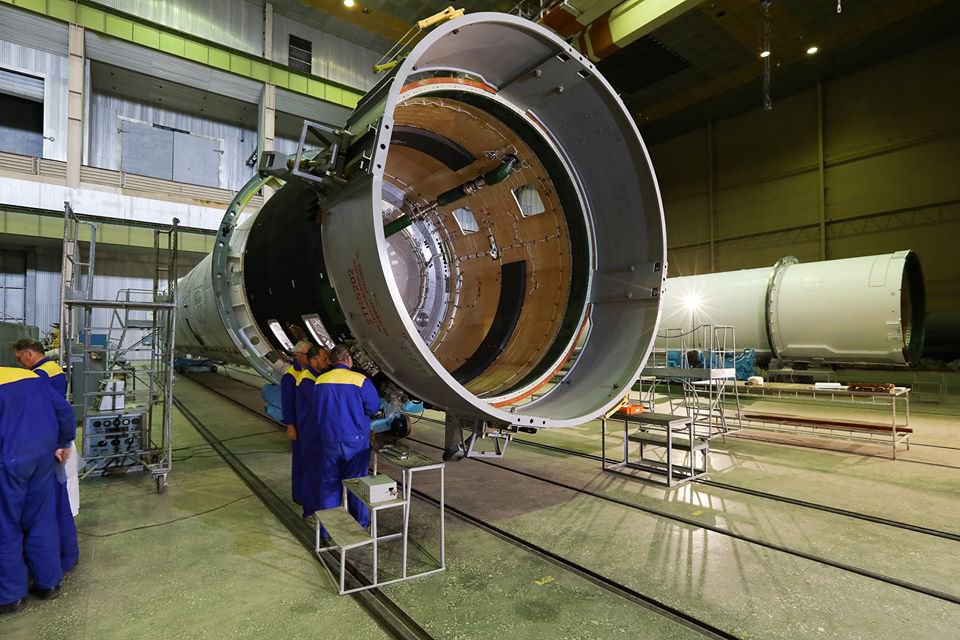
Initiatives of the tax regime with reduced rates, like 10-10-10. They are supposed to lower the entry threshold and boost private business, but this means at least a temporary drop in revenues. President Zelenskyy recently admitted that we have obligations to our partners that do not allow such experiments. Should this be a luxury for the times after the victory, when we will be able to balance the budget and reduce dependence on grants from partners? Or can we take the risk now?
I'll be honest, it's a bad idea. 10-10-10 is a bad idea. First, let's think about how much money we will have to spend on different things after the victory. They say that the defence sector will get 5%, our pension fund will be about 10-15% of GDP, schools, education, and so on, science will get another 5%. Another 5% will be healthcare, maybe even more, let's say 10 if we take into account veterans and so on. If you add it all up, it's already more than we can raise through these 10-10-10. The calculations just doesn't work here, it doesn't add up. This money will have to come from somewhere.
Secondly, it is based on the philosophy that there is a Laffer curve, according to which if you cut taxes, the tax base grows so fast that it covers the losses due to lower tax rates. But it doesn't work, it's voodoo economics, some misconceptions for which there is no empirical support. If it didn't work anywhere else, why would it work here?
And third, if we think a few steps ahead, Ukraine wants to join the European Union. The European Union is actively fighting offshoring. How will they accept offshore companies like Ukraine under such conditions? Why would they do that? We will need to harmonise our tax policy with the EU. For example, in many developed countries, there is an initiative to have a minimum tax rate on corporate profits. Now they are talking about 15%. How are we going to combine 10 and 15? It won't work. If we want to join the EU, we will have to do 15. So why do 10 and then change it?
And the last thing: we have to understand that during the war, the allies give us money, but we cannot spend it on some military stuff. That shells, tanks, airplanes, and military salaries come from our budget. Where do we get the money to pay for all this during the war? I have no answer to this. And it is irresponsible to do these experiments during the war.
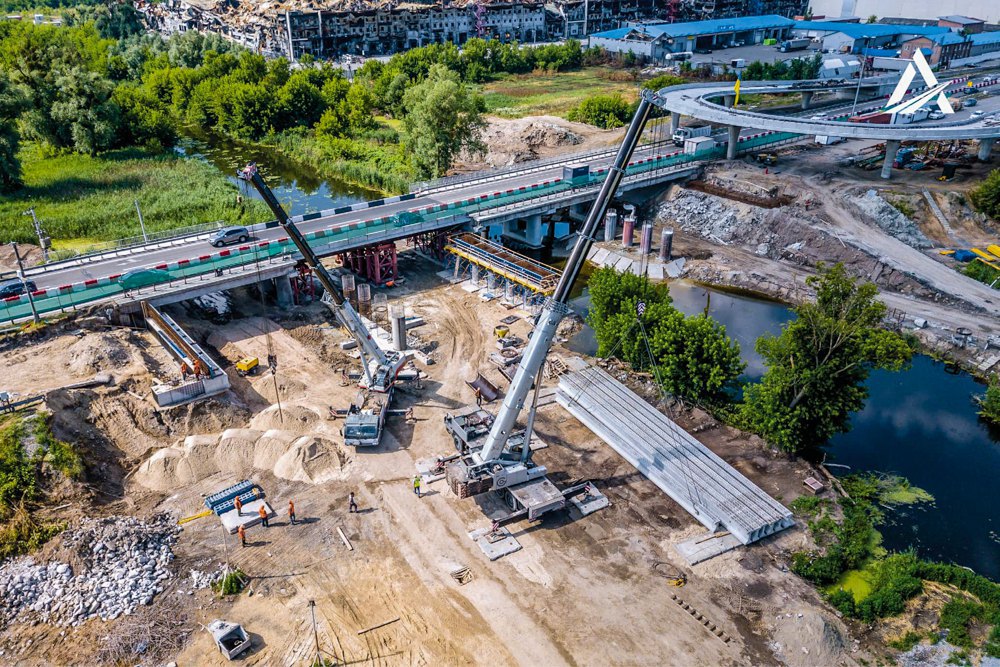
How do you make a choice between fiscal discipline and laying the foundation for a new economy? It means redistributing money where it can pay off in many years, maybe decades. Let's say we spend less on houses to replace the destroyed ones, but let's build a research center that will give us a school for microprocessor design in 15 years?
When we think about the future, how to use money, we have to understand that there will be budgetary constraints. If you look at the experience of the countries that have been recovering, nothing can be done without macroeconomic stability, nothing will fly. And macroeconomic stability means no inflation. No inflation means healthy public finances, no large fiscal imbalances, no budget deficit of 5% or more. It is important to understand what our limitations are. We cannot build a microprocessor center, roads and everything at the same time.
We will have to prioritise our efforts. How can this be done? Ukraine is a democracy, and this will be done through the electoral process. People will decide what they want to build. This is also a reality.
Is it even possible to plan effectively?
If we have a planning horizon of 100 years, I would be very cautious. But for the next 5-10 years, I think the picture is more or less clear as to what we need to do. We need to join the European Union, we need to harmonise our institutions with the European ones. This is a must, it has to be done. And many other things, we don't have to invent anything, if we set a goal, for example, to be a leader in green energy, we have already done a lot in other countries. We just need to look at the experience of those countries, take the best and implement it in Ukraine.
We are, of course, at war. People are always thinking about the war, what to do today, what to do tomorrow. But we need to allocate resources so that at least a group of people can work on longer-term things. What should this reconstruction look like? I don't want it to be an exercise before a donor conference, but a systematic effort to rebuild, so that people actually make plans.
